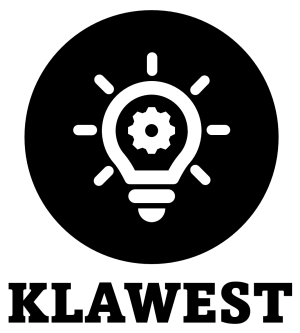New Projects
current projects | completed projects | all projects | new projects

AMR-Launch
Development of an augmented reality-based system for standardised commissioning and intuitive configuration of autonomous mobile robots
Duration 01.01.2026 - 31.12.2027, Funded by BMFTR
Show project description Hide project description
The research project “AMR-Launch” is developing an integrated, intuitive, cross-vendor system for commissioning and configuring autonomous mobile robots (AMRs). The aim is to make it easier for small and medium-sized enterprises in particular to use AMRs flexibly and to reduce their dependence on specialised personnel or external integrators. The system is based on AR-supported user environments, standardised AMR interfaces and an AMR abstraction layer. Operational staff can configure AMRs directly in the AR environment; automatic calibration synchronises the real environment, AR model and robot map. The approaches are being validated in practical application scenarios.
Contact persons
- B. Vur () (Project manager)
- L. Mittelsdorf ()
- L. Panter ()
Keywords
Robotics and automation, Human-technology interaction, Transport and logistics, Manufacturing industry, Autonomous robot and transport systems, AR / VR / Speech
SharePort
Resilient Smartport: Enhancing Supply Chain Robustness through Dynamic Resource Sharing
Duration
01.01.2026 - 30.06.2027,
Funded by BMFTR
Download PDF-Flyer
Show project description Hide project description
Ports are facing intense competitive pressure and must invest in automation and digitalization. Fluctuating utilization levels lead to resource shortages during peak periods and idle capacities during quieter phases. SharePort aims to increase the resilience of the port system through resource sharing. Port stakeholders can lend out temporarily unused resources at short notice to avoid bottlenecks and optimize capacity utilization. In addition to functional resilience, sharing promotes cooperation between companies, creates new synergies, and thus strengthens the structural and social resilience of the port community. The project will develop a prototypical digital platform for managing sharing transactions, as well as a simulation game for various sharing scenarios.
Contact persons
- G. Middelbeck () (Project manager)
- M. Teucke ()
Keywords
System development and planning, Maritime economy, Transport and logistics, Serious gaming and gamification, Digital platforms / IoT

WTEST
Knowledge-based test management for test cases
Duration
01.11.2025 - 31.10.2027,
Funded by BMWE
Download PDF-Flyer
Show project description Hide project description
The goal of the project is to develop an interoperable and scalable framework for integrating test knowledge into everyday testing activities. This test knowledge will be embedded into the test processes of complex mechatronic systems through a copilot.
The background is that experience and engineering judgment play a crucial role in selecting and implementing test cases. Therefore, the framework will develop innovative, knowledge-based methods to support the creation of test scripts. This will enable OEMs and suppliers to semantically capture test cases and use the information in a task-specific manner.
Task-specific provision of information will be realized through the copilot, which will be integrated into Razorcat’s testing tools. The advantage of the developed copilot is that its suggestions are deterministic, reproducible, and traceable, thereby ensuring compliance with the guidelines for testing safety-critical systems.
Contact persons
- M. Franke () (Project manager)
- K. Hribernik ()
Keywords
Product and process development, Aviation, Assistance systems, Semantic modelling and ontologies

KLAWEST
Skills transfer, learning support and working cultures for responsive, dynamic value creation structures
Duration
01.11.2025 - 31.10.2026,
Funded by BMBF
Download PDF-Flyer
Show project description Hide project description
Germany has some catching up to do when it comes to continuing education. Recent studies show that only a small proportion of the 25- to 64-year-olds in Germany participate in formal education programmes – significantly less than the EU average. Concepts such as learning-friendly work environments and learning ecosystems offer the potential to overcome this continuing education crisis. However, they must be combined with value creation dynamics, such as technological development and work culture, to ensure optimal skills transfer. Against this backdrop, KLAWEST is looking for research needs for skills development in a business context at manufacturing and logistics companies.
The aim of the preliminary scientific study is to develop four different consistent descriptions of the future in the areas of skills transfer, new approaches to learning support and changing work cultures. The foresight process is based on a tailor-made method. This is based on scenario management, a process for the structured development and interpretation of possible future scenarios, and is carried out by a team of experts. The results of this process are validated and expanded using a Delphi method, a multi-stage sequence of consecutive expert surveys.
Contact person
- H. Duin () (Project manager)
Keywords
Digitalisation, Value creation networks, Research and development, Training & qualification
WeR3t-Netze
Regional value creation networks for Resilience and Resource conservation
Duration
01.11.2025 - 31.10.2026,
Funded by BMFTR
Download PDF-Flyer
Show project description Hide project description
In the absence of established sustainable business models, the potential of the circular economy often remains untapped. WeR³t-Netze is investigating how small and medium-sized enterprises (SMEs) in particular can create synergies, make optimal use of local resources, and increase their resilience in regional networks with innovative services and business models. The aim is to derive the corresponding research needs from a concrete vision of the future for sustainable value creation in the region through a strategic review. In its sub-project, BIBA is responsible for project management and the organization of the backcasting process and the transfer of results.
Contact person
- S. Wiesner () (Project manager)
Keywords
Value creation networks, Sustainability, Manufacturing industry, Services industry, Business models, Knowledge transfer
Events:
March 4, 2026, online
March 4 to 5, 2026, Wolfsburg
BIBA with LogDynamics at the LogisticsConnect 2026 Trade Fair
March 5-6, 2026, Bremen
Tag der Logistik 2026: Cybersicherheit für smarte Logistik
16. April 2026, BIBA, Bremen
More events


